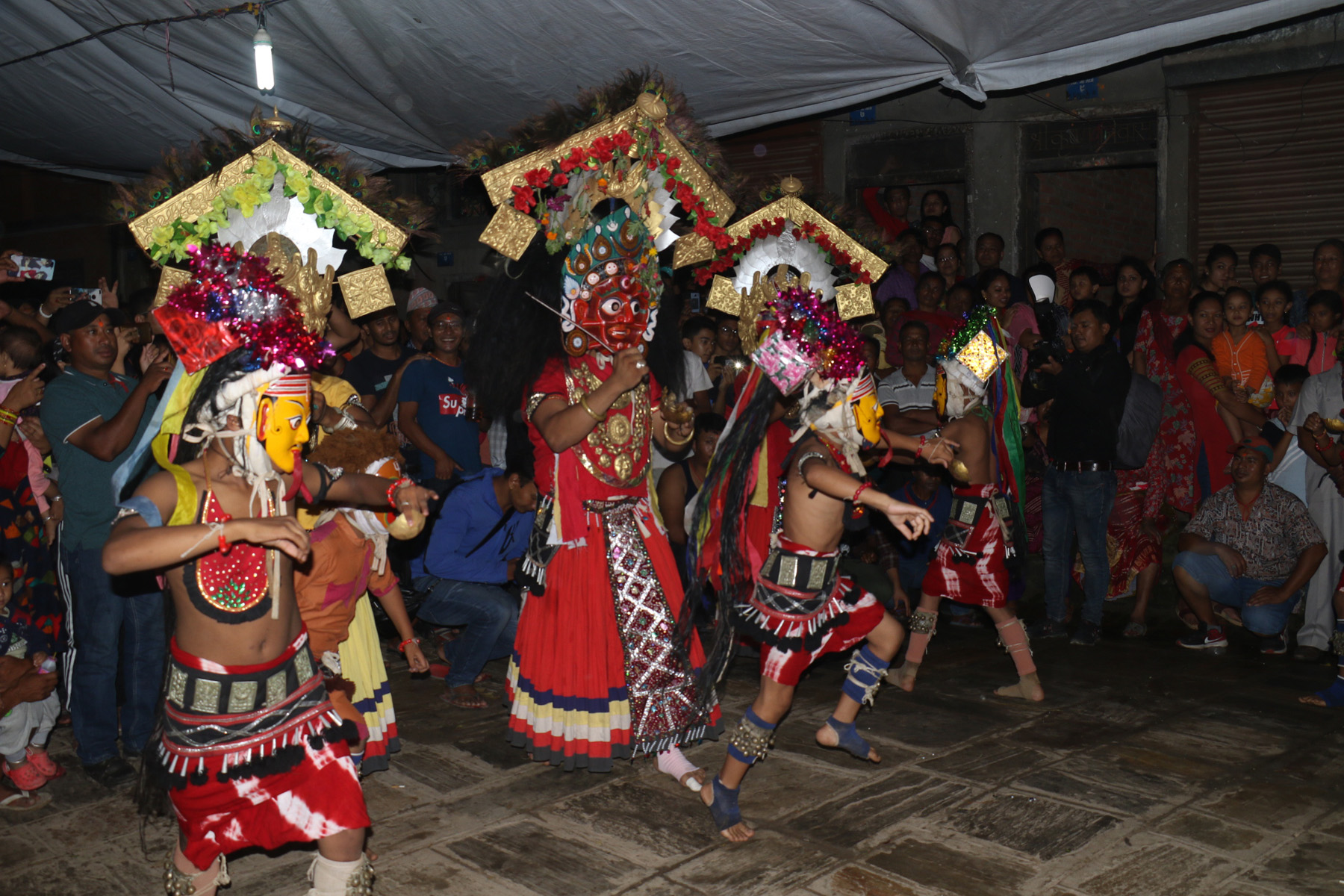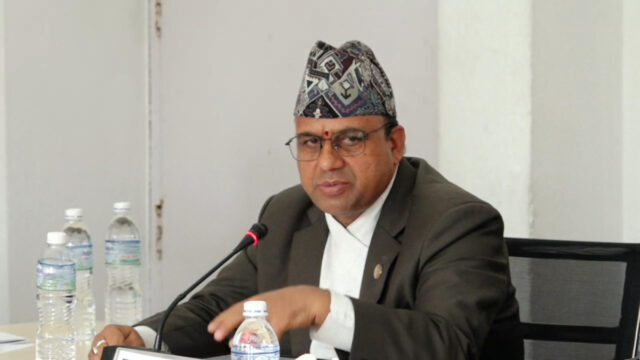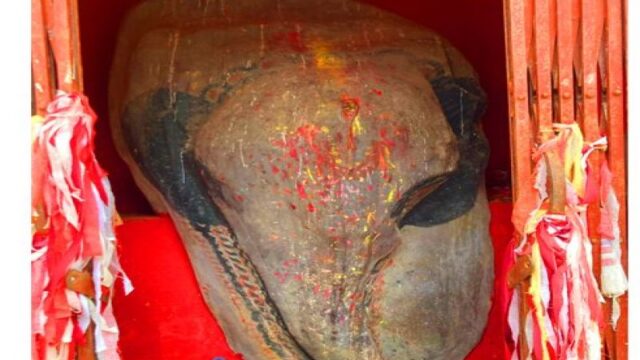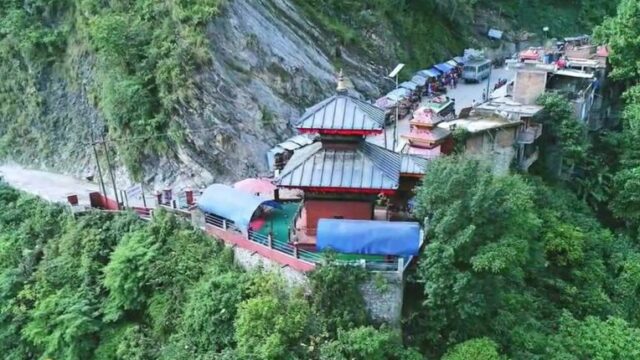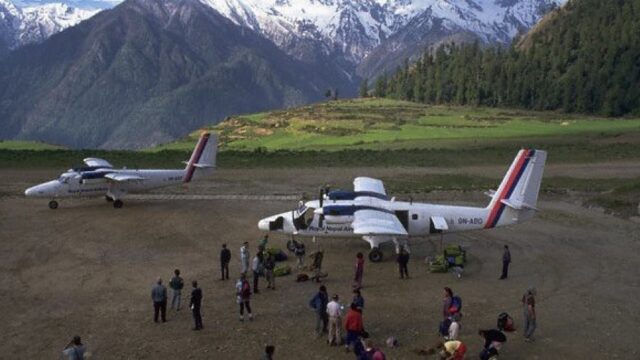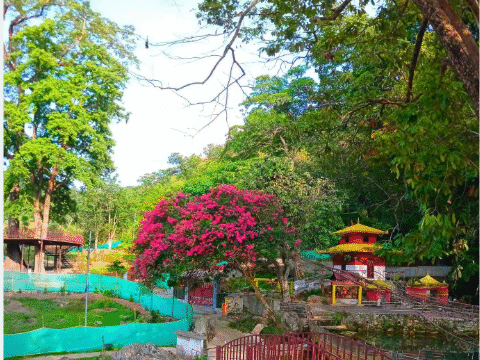Following the Gai Jatra festival, a series of traditional dance rituals have commenced across various towns within Madhyapur Thimi Municipality since last night. The rituals include performances dedicated to deities such as Bhairav, Mahakali, and Nilbarahi, showcasing tantric methods and divine powers.
These dances, believed to have originated before the Malla period, are traditionally performed to protect Madhyapur Thimi from malevolent spirits and supernatural entities. The custom has been practiced since before the Malla era and is deeply rooted in local tradition.
From Bhadra Krishna Dwitiya (Gunla Dwitiya) to Panchami, different dances are held in various locations within Madhyapur Thimi: Nilbarahi in Bode, Mahakali in Nagdesh, and both Laiku Bhailah and Thimi Bhailah in Thimi. These performances have evolved, reflecting the rich cultural heritage of the region.
Cultural expert Arjun Shrestha explains that these rituals involve tantric scholars who use divine dances and chants to drive away troublesome spirits and ensure the well-being of the local communities. The tradition involves all-night dances and performances dedicated to specific deities.
This year, the Thimi Bhailah (Thimi Bhairav) dance from Tahanani, the Mahakali dance from Nagdesh, and the Nilbarahi dance from Bode have started today. Despite challenges, the Nilbarahi dance in Bode, which has never been interrupted by any crises, continues its performance this year. In contrast, the Laiku Bhailah and Mahakali dances, which have faced interruptions in the past, are being performed again this year.
After nearly two decades, the Thimi Bhailah has been revived in Madhyapur Thimi-5, Tahanani, and the Mahakali dance is being staged for the first time in five years.
Over 50 participants take part in these dances, performing rituals with divine power and musical accompaniment, as noted by cultural expert and guru Shrestha. The tradition of performing the Nilbarahi dance throughout the night and offering prayers at dawn continues, as confirmed by resident Dilkrishna Prajapati. Locals actively participate in these rituals, remaining awake throughout the night to join the festivities.
